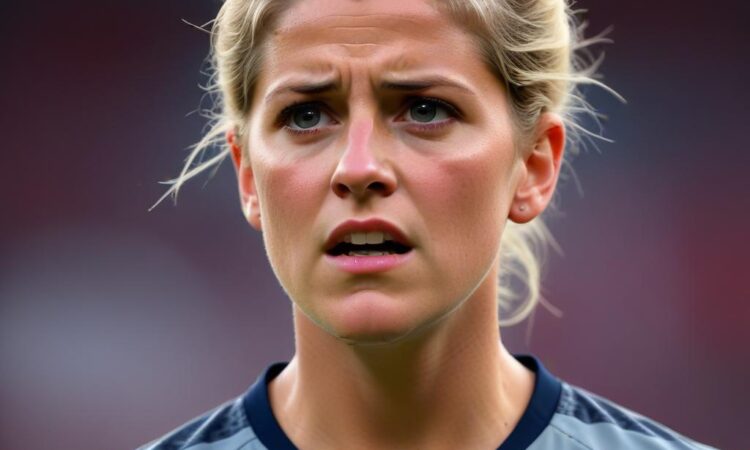Bright Fires Back: “We’re Not Robots!”
Chelsea captain Millie Bright didn’t hold back after their hard-fought 1-0 win against Aston Villa on Sunday. She slammed the online abuse directed at her and her teammates, calling it “hugely disappointing.”
The match itself was a nail-biter, a tense affair decided by a single goal. But the post-match fallout overshadowed the on-field action. Bright, known for her calm demeanor and leadership on the pitch, was clearly riled up by the negativity she’d encountered online.
“It’s hugely disappointing to see the kind of abuse that’s been directed at us,” Bright stated in a post-match interview. “We’re not robots. We’re human beings, we pour our hearts and souls onto that pitch every single game. We give it our absolute all, and sometimes things don’t go our way. But that doesn’t give anyone the right to be abusive or disrespectful.”
She continued, emphasizing the toll this kind of online harassment takes on the players. “It’s really disheartening. We’re not just footballers; we’re people with feelings and families. Reading that kind of stuff… it hurts. It impacts us mentally, and it shouldn’t be something we have to deal with.”
Bright’s statement echoed the sentiments of many players across various sports who have spoken out against online abuse. The pervasive nature of this problem has become a major concern, highlighting the need for stronger measures to protect athletes from this kind of negativity.
The Chelsea captain’s words served as a powerful reminder that celebrating victory shouldn’t come at the cost of players’ mental well-being. The focus should remain on the athletic achievements and the dedication these athletes display, not on subjecting them to unwarranted criticism and abuse.
The incident also sparked a wider conversation about the responsibility of fans and social media platforms in combating online hate speech. Many are calling for stricter regulations and greater accountability from social media companies to protect athletes and individuals from online bullying.
Beyond the immediate reaction, Bright’s words highlight a broader issue within the world of professional sports: the immense pressure faced by players, both on and off the field. The constant scrutiny, the high stakes, and the ever-present threat of online negativity can take a significant toll on their mental health.
Bright’s passionate response served as a call to action, urging fans and the wider football community to consider the human side of the game and the impact of their words and actions. The online world can be a powerful tool for connection and support, but it can also be a breeding ground for negativity and hate. It’s crucial to remember the responsibility that comes with being part of this digital community.
The incident serves as a stark reminder of the importance of fostering a more positive and respectful online environment for all athletes. The hope is that this incident will inspire further conversations and initiatives aimed at tackling the pervasive issue of online abuse in sports and beyond.
It’s time for a shift in culture, a move away from a culture of instant judgment and negativity towards one that values respect, empathy, and understanding. The dedication and hard work of athletes deserve to be celebrated, not met with insults and abuse. Bright’s powerful response is a step in the right direction toward creating a healthier and more supportive environment for athletes across all sports.
This is not just a problem for football; it’s a problem affecting athletes across all disciplines. The need for comprehensive action to address online abuse is undeniable, and the voices of athletes like Millie Bright are crucial in driving that change.
The Chelsea captain’s resolute response underscores the need for a more positive and respectful online environment. It’s a conversation that needs to continue, and a change that needs to happen.

